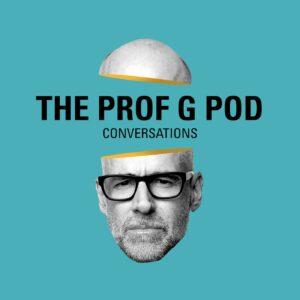Intro
In this episode of “The Peter Attia Drive,” Peter Attia and Andrew Huberman have a journal club where they discuss interesting papers related to metformin as a geroprotective drug, the power of belief, and how to read scientific papers. The goal of the podcast is to translate the science of longevity into something accessible for everyone. The podcast is made possible by members who receive exclusive member-only content and benefits.
Main Takeaways
Metformin as a Geroprotective Drug
- A 2014 study by Bannister et al initially sparked interest in metformin as a possible geroprotective molecule.
- Metformin is a drug used for type 2 diabetes treatment for over 50 years.
- It inhibits complex one of the mitochondria, reducing hepatic glucose output.
- Metformin changes the ratio of adenosine monophosphate to adenosine diphosphate.
- Metformin can help regulate high glucose output from the liver in people with type 2 diabetes.
- Metformin changes the way the body partitions fuel, rather than depriving the body of calories.
- Metformin is a first-line drug for type 2 diabetes that addresses glucose output.
- Other drugs for diabetes either increase insulin production or sensitivity.
- Metformin can cause initial side effects such as appetite suppression and nausea.
- Metformin may not be as effective as previously thought in reducing the risk of death due to diabetes.
The Power of Belief
- Our beliefs about the drugs we take impact how they affect us biologically, not just subjectively.
- Placebo effects are real, and belief effects can shift psychology and physiology.
- Belief effects scale according to the amount and type of information received.
- Belief effects can range from 10-30%, either benefiting or hindering performance.
- Belief about drug effects impacts side effects and primary symptoms.
- Calling side effects “additional benefits” may change our perception of them.
- No-cebo effect causes people to experience side effects they expect.
How to Read Scientific Papers
- Understanding scientific papers is a skill that requires more than just reading the abstract.
- Physicians leaving medical school possess the equivalent of two additional full languages worth of words and terms in their vocabulary.
- Reading scientific papers requires substantial training and familiarity with the subject matter.
- To effectively read a paper, ask the four questions: what is the question they’re asking, what was the approach, what did they find, and what is the conclusion of the study.
- Physicians leaving medical school own the equivalent of two additional full languages worth of words and terms in their mind and vocabulary.
- Starting with the figures can generate more questions and lead to reading the methods section.
- Many papers have supplemental information that cannot be included in the main article due to journal formatting requirements.
- Posting papers online for peer review prior to publication is a new trend in academic publishing.
Summary
Metformin as a Geroprotective Drug
Metformin, a drug used for type 2 diabetes treatment, has been studied for its potential geroprotective effects. It inhibits complex one of the mitochondria, reducing hepatic glucose output and changing the body’s fuel partitioning. While metformin is a first-line drug for type 2 diabetes, its effectiveness in reducing the risk of death due to diabetes is still a topic of debate.
The Power of Belief
Beliefs about the drugs we take can have a significant impact on their biological effects. Placebo effects and belief effects can influence psychology and physiology, ranging from 10-30% in terms of performance. Understanding the power of belief can help shape our perception of drug side effects and primary symptoms.
How to Read Scientific Papers
Reading scientific papers requires training and familiarity with the subject matter. Physicians leaving medical school possess a vast vocabulary of words and terms related to their field. Effective reading involves asking key questions about the study’s question, approach, findings, and conclusions. Starting with figures and exploring supplemental information can provide a deeper understanding of the research. The trend of posting papers online for peer review prior to publication is changing the landscape of academic publishing.
Conclusion
Through the discussion of metformin as a geroprotective drug, the power of belief, and how to read scientific papers, this episode of “The Peter Attia Drive” highlights the complexities of longevity research and the importance of understanding the science behind it. By translating scientific concepts into accessible information, the podcast aims to empower listeners to make informed decisions about their health and well-being.
